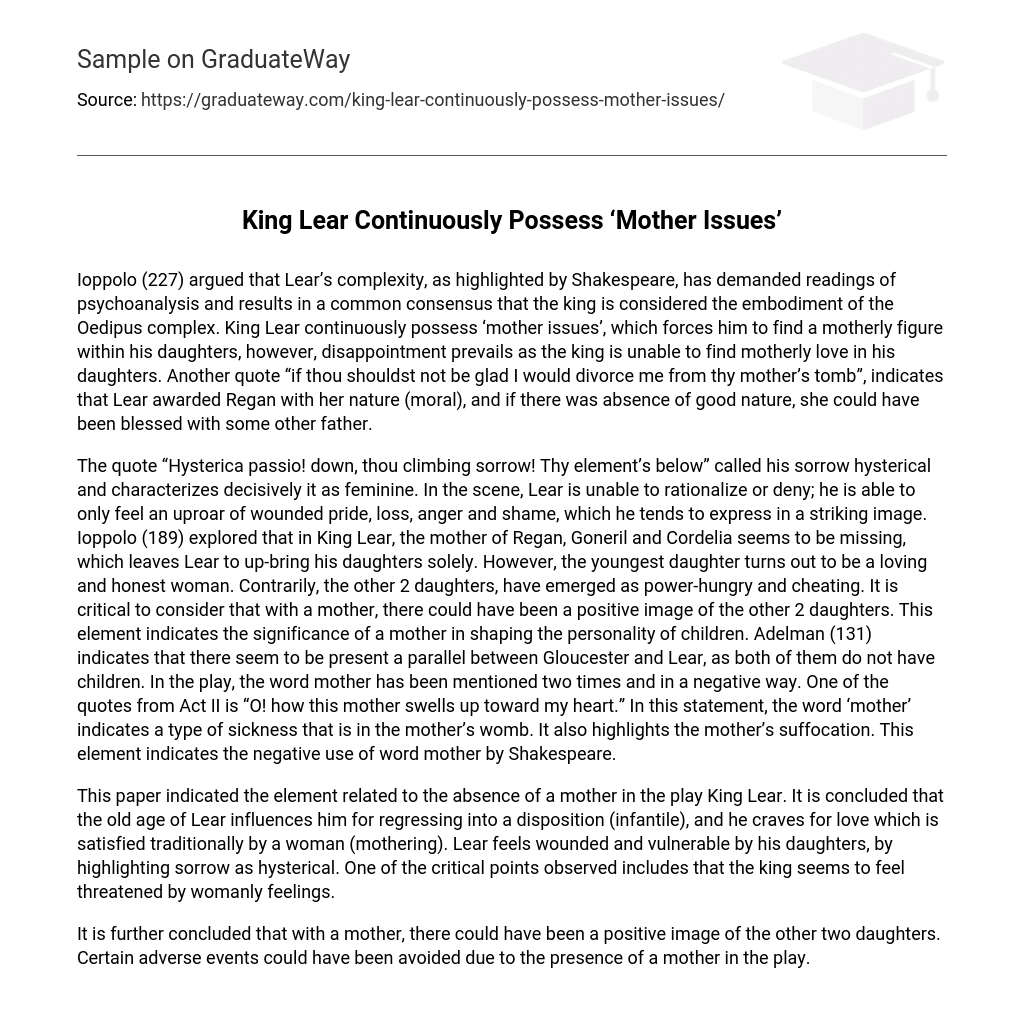Ioppolo (227) argued that Lear’s complexity, as highlighted by Shakespeare, has demanded readings of psychoanalysis and results in a common consensus that the king is considered the embodiment of the Oedipus complex. King Lear continuously possess ‘mother issues’, which forces him to find a motherly figure within his daughters, however, disappointment prevails as the king is unable to find motherly love in his daughters. Another quote “if thou shouldst not be glad I would divorce me from thy mother’s tomb”, indicates that Lear awarded Regan with her nature (moral), and if there was absence of good nature, she could have been blessed with some other father.
The quote “Hysterica passio! down, thou climbing sorrow! Thy element’s below” called his sorrow hysterical and characterizes decisively it as feminine. In the scene, Lear is unable to rationalize or deny; he is able to only feel an uproar of wounded pride, loss, anger and shame, which he tends to express in a striking image. Ioppolo (189) explored that in King Lear, the mother of Regan, Goneril and Cordelia seems to be missing, which leaves Lear to up-bring his daughters solely. However, the youngest daughter turns out to be a loving and honest woman. Contrarily, the other 2 daughters, have emerged as power-hungry and cheating. It is critical to consider that with a mother, there could have been a positive image of the other 2 daughters. This element indicates the significance of a mother in shaping the personality of children. Adelman (131) indicates that there seem to be present a parallel between Gloucester and Lear, as both of them do not have children. In the play, the word mother has been mentioned two times and in a negative way. One of the quotes from Act II is “O! how this mother swells up toward my heart.” In this statement, the word ‘mother’ indicates a type of sickness that is in the mother’s womb. It also highlights the mother’s suffocation. This element indicates the negative use of word mother by Shakespeare.
This paper indicated the element related to the absence of a mother in the play King Lear. It is concluded that the old age of Lear influences him for regressing into a disposition (infantile), and he craves for love which is satisfied traditionally by a woman (mothering). Lear feels wounded and vulnerable by his daughters, by highlighting sorrow as hysterical. One of the critical points observed includes that the king seems to feel threatened by womanly feelings.
It is further concluded that with a mother, there could have been a positive image of the other two daughters. Certain adverse events could have been avoided due to the presence of a mother in the play.





